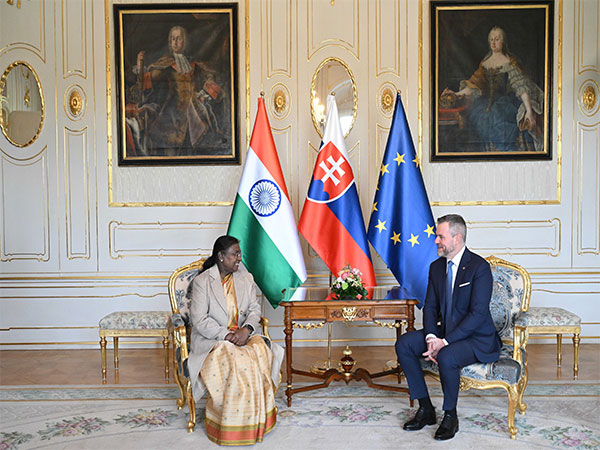Challenging Doklam crisis resolved after PM Modi walked up to Chinese President at G-20: Former DGMO Lt Gen Anil Bhatt
Jan 20, 2023

New Delhi [India], January 20 : Recalling the 2017 India-China border standoff, former Director General of Military Operations Lt Gen Anil Bhatt (Retd) said the Doklam issue was a challenging time for the country and was resolved due to Prime Minister Narendra Modi's initiative of walking up to Chinese President Xi Jinping at the G20 meeting and asking him to resolve it on diplomatically.
In the podcast with Smita Prakash', Editor-in-Chief of ANI, Lt Gen Bhatt said, "Those 74 days of Doklam crisis, was the most challenging for me, the most sleepiness nights but professionally most satisfying as I look back. Nearly every day the backroom team was meeting, talking and discussing and who all did it have, it was led by National Security Advisor (NSA) Ajit Doval, then foreign secretary S Jaishankar, Intelligence Bureau (IB) chief, RAW chief, myself and JS who was handling China. At times whenever the Ambassador Mr Gokhale from China was flying in a number of times to brief us. The was a team meeting in Delhi and nearly meeting nearly every second. Getting all round 360 degrees output and also working out what would be our response."
Lt Gen Bhatt further said that informal but it was like a war room situation.
"In between whenever there was a requirement, the Prime Minister was briefed on this. The foreign secretary and defense minister were kept into the loop nearly on a daily basis," he said.
Lt Gen Bhatt (Retd) served as DGMO in 2017 when the Indian Army carried out extensive operations in the Doklam crisis along the Bhutan border and the Line of Actual Control and stood up to the Chinese bullying tactics in the region.
The former DGMo said that the Doklam crisis was not resolved only because of the military part but also because of Prime Minister Narendra Modi's initiative of walking up to Chinese President Xi Jinping at the G20 meeting and talking to him to resolve it on diplomatic grounds.
"Everyone was aware of what was happening, what were the responses and actions were taken and like this Doklam was not only resolved at what we did it. Doklam itself which was our military part of it and our action, even the Prime Minister's initiative of walking up to Xi Jinping at a meeting on 15 July. It was G20, he walked up to the Chinese President and told him okay this is a time now, this is what will happen, we need to resolve it and I believe he agreed that was what the newspaper report says. That we should talk diplomatic but on the ground what happened was we started communicating at the level of foreign ministers and the diplomacy," he said.
Explaining why the PM's intervention was necessary, Lt Gen Bhatt said, "It was something a meeting as it was not scheduled, it was the initiative that the Prime Minister took seeing the seriousness of the whole issue. What had happened, something which could have turned into a war but stopped at a confrontation. We have to see a bigger picture and this was because PM understating the seriousness of the problem and finding a solution which I think was the best."
Earlier in 2017, a face-off situation had arisen in the Doklam region between Indian and Chinese troops that was later resolved following diplomatic discussions between both nations.
The face-off, which lasted for over three months, was called off after both sides arrived at an understanding for the disengagement of their border personnel.
Lt Gen said that his tenure as a Chinar Corps commander was his dream and he would have continued like that forever.
"Amongst my entire carrier if I look back and look at something which was like a dream was my tenure as a Chinar Corps commander. Every morning when I would get dressed up and just before I left to meet the forward troops, I would close my eyes and thank god. I would say that "This life should continue forever, that you are there where the whole nation is looking up to you to perform, you lead the best man of the Indian Army and whatever you do will help this nation to become strong. Every day it would make me feel that I was in the ultimate job and wished that I would have continued like that forever," he added.
He said that China's aim is to "test India's resolve and test what we will allow them to do and keep the LAC active and it becoming more powerful both economically and it is growing up and it wants to exert on its periphery."
"We know geo-politically that in Asia if there is a rival, of course international leader USA, in Asia if any country which has not caught into the Chinese bandwagon it is India," he added.



















